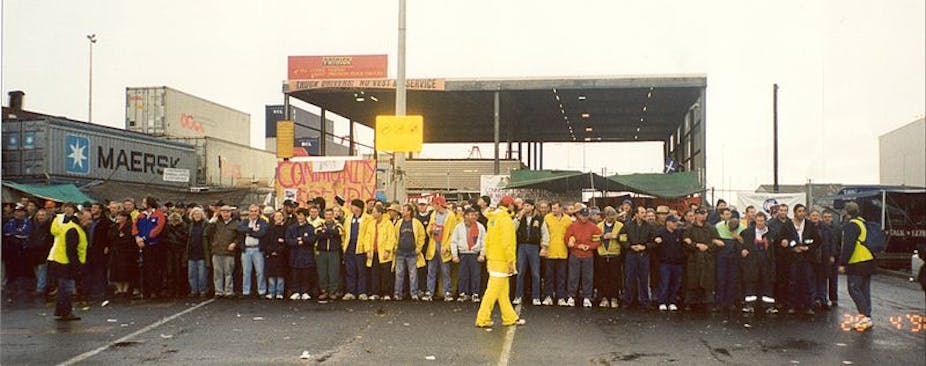After his failed attempt at winning the Liberal Party presidency, Peter Reith has become a liberated soul.
As president he would be expected to avoid controversy, especially on policy issues. But now, as simply a former government minister, Reith wants to be heard.
This presents a problem for Mr Abbott and the Liberal Party because Reith is focussing on Industrial Relations (IR), an issue that played a major role in the Howard Government’s demise in 2007.
Back then, the WorkChoices policy was implemented when the Coalition held a majority in the Senate. It was unpopular and Labor attracted significant support from voters who rejected this policy. Indeed, many Liberals believe that IR policy played a major role in the party’s election loss.
WorkChoices continued to dog Mr Abbott even during last year’s election campaign when he was continually forced to repeat the morbid mantra of the policy being “dead, buried and cremated”. Since then the issue seems to have been put on the backburner with the government’s Carbon Tax being the centre of public debate.
With his contribution this week, Mr Reith has put the spotlight back on Tony Abbott and contentious IR reforms.
There are interesting dynamics to the debate. One could easily dismiss Mr Reith’s comments as sour grapes. After all, Mr Abbott had supported his candidacy for party president but changed his vote at the last minute. No doubt Mr Reith felt somewhat betrayed and prodding the still open wounds of IR reform would be one way to get back at Mr Abbott.
On the other hand, Reith’s actions could be attributed to a sense that the Liberal Party will win the next election and needs to prepare its legislative agenda. If this is the case, then there are a couple of problems with this approach.
First, Labor and the unions could simply re-heat their anti-WorkChoices campaign of 2007 to sow seeds of doubt in voters’ minds as to whether Mr Abbott should be prime minister.
It would be unlikely that voters would warm to an IR policy that resembled the ill-fated WorkChoices at the next election if they felt strongly against it in 2007.
The second problem concerns the Senate. Unlike their last attempt at IR reform, an incoming Coalition government would not hold a majority in the Senate. Presumably Abbott would be unable to get the support of the Australian Greens, who will hold the balance of power in the Senate, to pass contentious IR changes.
Another interesting dynamic is how Reith would have used his position as party president to promote policy. The Liberal Party is structured in a way that separates the parliamentary wing from the organisational wing.
The organisational wing is responsible for overseeing election campaigns, fundraising, preselecting candidates and the running of the organisation. It can not bind the parliamentary wing to its policy decisions.
So far, Abbott has led the parliamentary wing in distancing itself from WorkChoices. Rather, he has sought to position the party as true opposition to Labor by highlighting perceived shortcomings in the government’s policies.
Under Mr Abbott’s leadership, the Liberal Party appears to know what it stands against. For example, it’s against the Carbon Tax and Labor’s asylum seeker policy.
Reith’s emergence threatens to derail this approach as it asks the Liberal Party what it actually stands for in detail. Clearly the Liberal Party still has to deal with various policy spot-fires, with IR having the potential to burn the party again.
While the Liberal Party is buoyed by strong opinion polls, it must still rise to the challenge of presenting a cohesive suite of policies to the electorate. Reith has just started the ball rolling, albeit in an indirect way.

